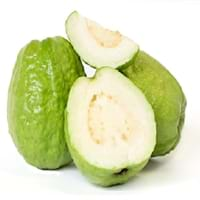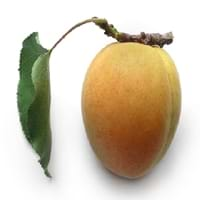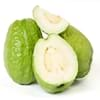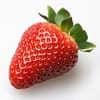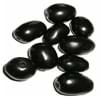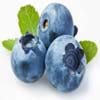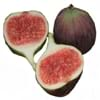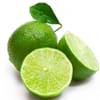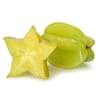Health Benefits
Cancer prevention, Diarrhea treatment, Prevents constipation, Scurvy treatment, Treatment of dysentary
Asthma treatment, Cancer prevention, Controls blood pressure, Digestive aid, Heart care, Maintains hormonal balance, Regulation of heart rate, Skin cleansing, Skin rejuvenation
General Benefits
Controls blood pressure, Cures cough, Improves eye vision, Maintains healthy cholesterol level, Treatment of common cold
Boosts immune system, Controls blood pressure, Digestive aid, Eye care, Maintains healthy cholesterol level, Strengthens bones
Skin Benefits
Anti-aging benefits, Brightens and lightens complexion, Hydrates skin, Treatment of skin diseases
Hydrates skin, Reduces wrinkles, Treatment of dark spots, Treatment of skin diseases
Hair Benefits
Prevents hair loss
Good conditioner, Regulates hair growth, Rejuvenates scalp, Softening mask, Treatment of dandruff
Allergy Symptoms
Breathing difficulty, Coughing, Runny nose, Sneezing, Swelling of mouth, tongue or lips, Wheezing
Abdominal cramps, Anaphylaxis, Breathing difficulty, Diarrhea, Itching of mouth, Itching sensation in throat, Swelling of mouth, tongue or lips, Vomiting, Wheezing
Side Effects
Hair thinning, Nail thinning, Skin problems, Tooth decay, Weakness, Possibly unsafe during pregnancy
Dizziness, Headache, Nausea, Vomiting
Best Time to Eat
As a snack in the late afternoon, Don't consume at night and before bed, Eat the fresh ones, avoid mixing with any other foods, don't eat after meal., Morning time (before lunch)
Best if taken as a breakfast (or empty stomach), As a snack in the late afternoon, Don't consume at night and before bed, Eat the fresh ones, avoid mixing with any other foods, don't eat after meal.
Vitamin B5 (Pantothenic Acid)
Vitamin C (Ascorbic Acid)
Vitamin K (Phyllochinone)
Phytosterol
Not Available
Calories in Fresh Fruit with Peel
Calories in Fresh Fruit without Peel
Not Available
Not Available
Calories in Frozen Form
Not Available
Not Available
Type
Tree fruit, Tropical
Tree fruit
Season
All seasons
Summer
Varieties
Lucknow 49, Allahabad Safeda, Chittidar, Harijha, Apple guava, Hafshi, Arka Mridula and Allahabad Surkha
Gold Cot, Tilton, Wenatchee, Goldbar, Gold Kist, Tomcot, Harcot, Brittany Gold, Harglow, Hunza, Moorpark, Patterson and Royal Rosa
Color
Green, Pink, Yellow
Orange, Yellowish-orange
Inside Color
White
Yellow
Taste
Sweet-Sour
Smooth, Sweet
Origin
Central America, Mexico, South America
China
Soil Type
Loam, Rocky, Sandy
Well-drained
Climatic Conditions
Sunny
Dry, Hot
Facts about
- The black pigment in Guava leaves is used for textile applications.
- Guava leaves are used to make tea.
- Oils extracted from guava seeds are used in various cosmetics.
- Guava wood is used for decorative purposes.
- 9 Jan is considered as the National Apricot Day.
- Apricots have been around for more than 4000 yrs.
- In latin, the meaning of apricot is 'precious'.
- 95% of apricots in the US are produced by California.
Top Producer
India
Turkey
Other Countries
China, Indonesia, Mexico, Nigeria, Pakistan, Philippines, Thailand
Algeria, Egypt, France, Iran, Italy, Morocco, Pakistan, Spain, Uzbekistan
Top Importer
Canada
United States of America
Top Exporter
India
France
Botanical Name
Psidium guajava
Prunus armeniaca
Synonym
Not Available
Not Available
Subkingdom
Tracheobionta
Tracheobionta
Division
Magnoliophyta
Magnoliophyta
Class
Magnoliopsida
Magnoliopsida
Family
Myrtaceae
Rosaceae
Species
Psidium guajava
P. armeniaca
Generic Group
Myrtle
Rose
Compare Guava and Apricot
It is important compare Guava and Apricot as both the fruits have a different nutritional value. Their comparison can be done on the basis of their vitamin and mineral content, calories, benefits as well as characteristics, making it easier for us to choose the best fruit for our diet. Their general health benefits are as follows:
Guava Benefits: controls blood pressure, cures cough, improves eye vision, maintains healthy cholesterol level and treatment of common cold.
Apricot Benefits: boosts immune system, controls blood pressure, digestive aid, eye care, maintains healthy cholesterol level and strengthens bones.
Fruits are also used as a remedy for various hair problems. The hair benefits of Guava are: prevents hair loss and hair benefits of Apricot are: good conditioner, regulates hair growth, rejuvenates scalp, softening mask and treatment of dandruff. Some fruits are known to cause allergic reactions. The allergy symptoms of first fruit are: breathing difficulty, coughing, runny nose, sneezing, swelling of mouth tongue or lips and wheezing and the symptoms of second fruit are: abdominal cramps, anaphylaxis, breathing difficulty, diarrhea, itching of mouth, itching sensation in throat, swelling of mouth, tongue or lips, vomiting and wheezing. Get sorted Guava vs Apricot comparison with the help of fruit comparison tool by fruitvs.com.
